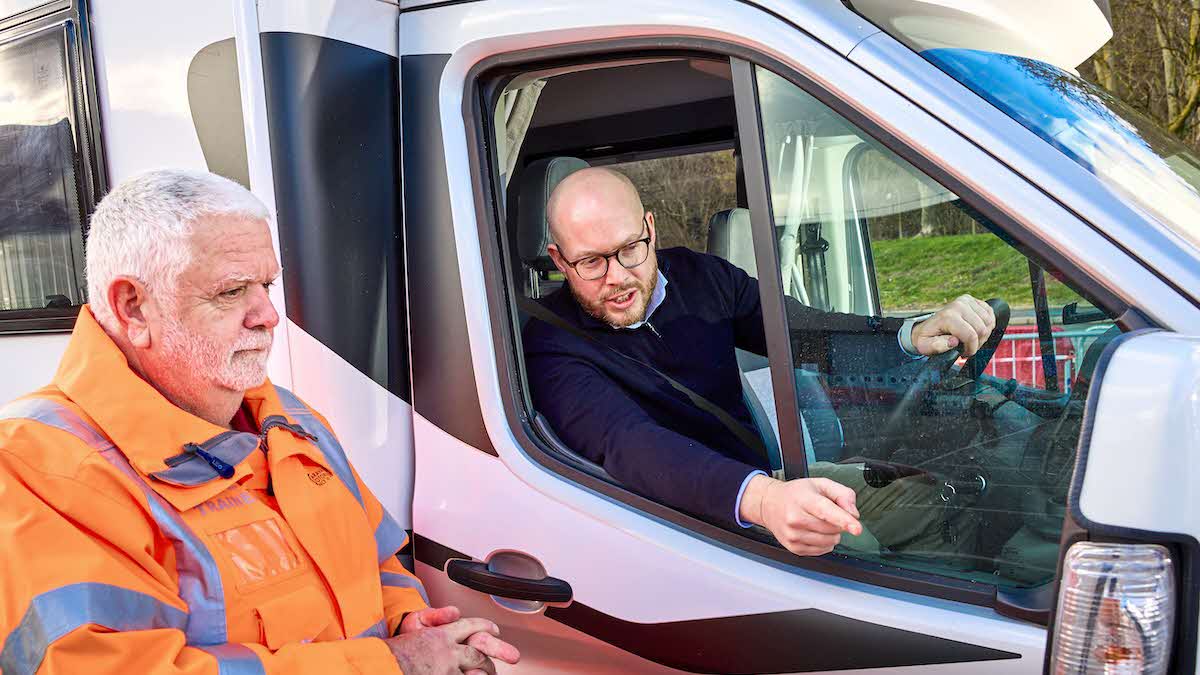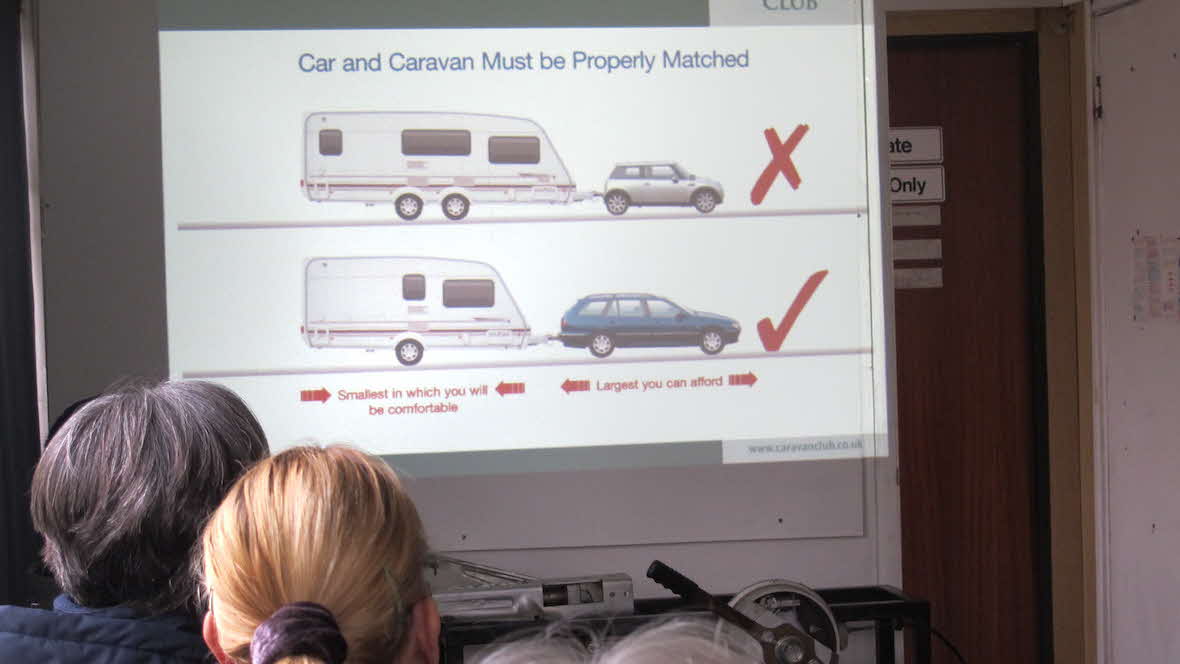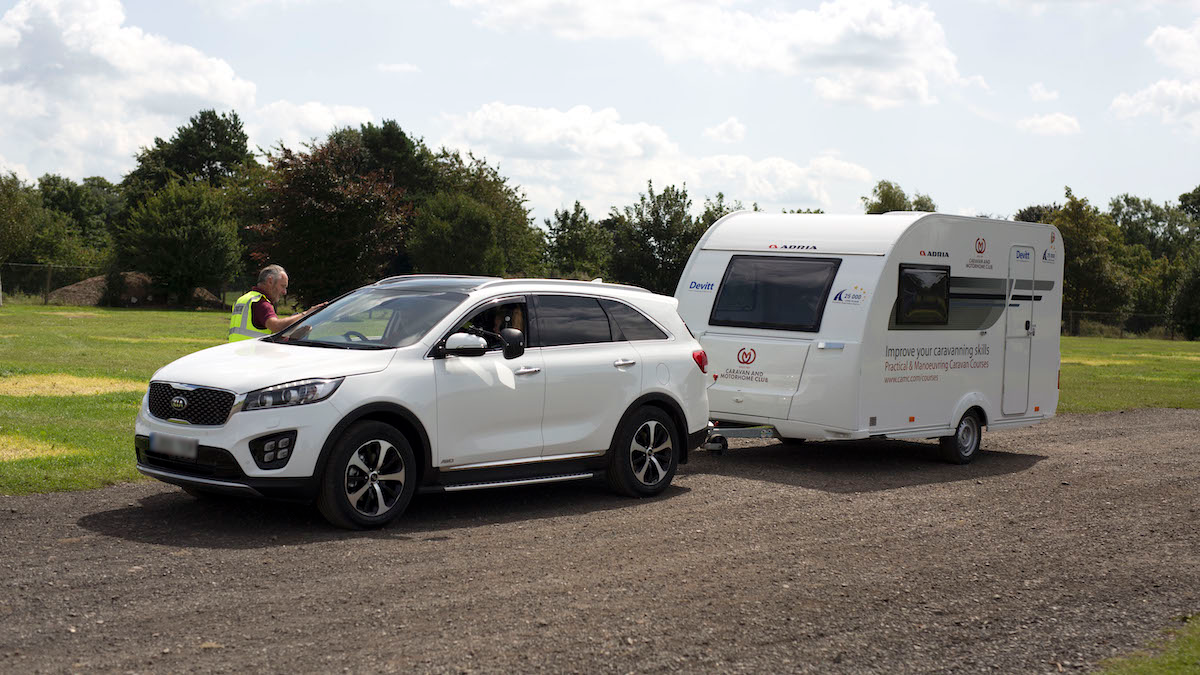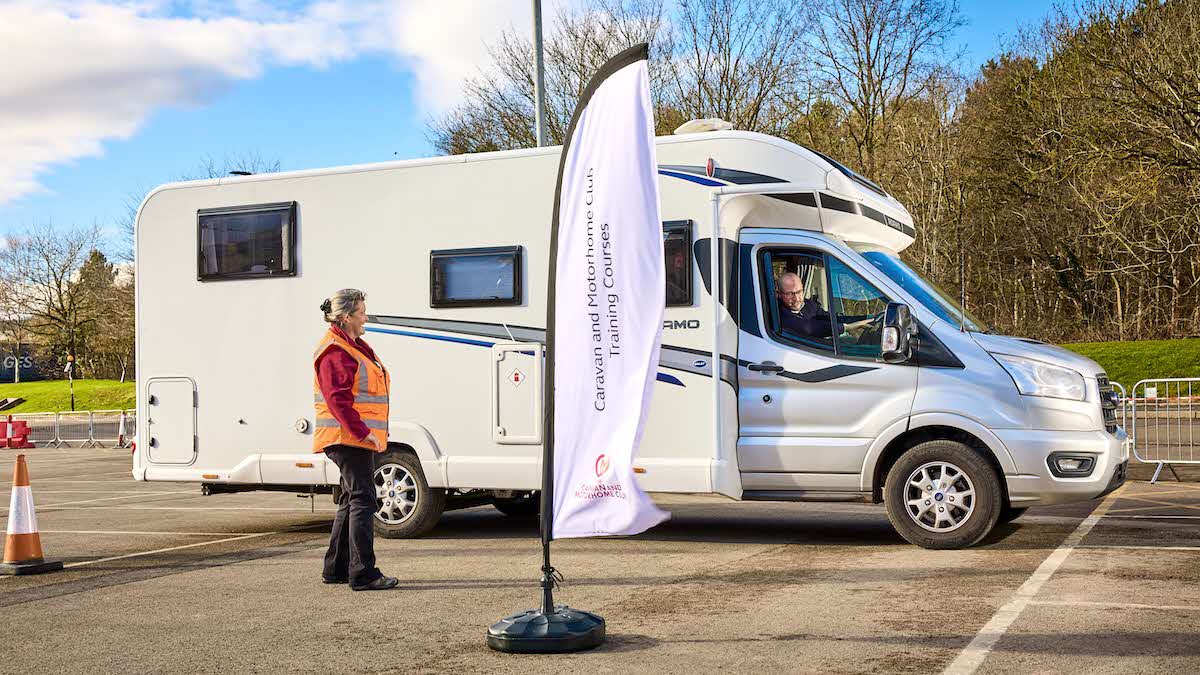Advice from experts at the Club
Whether you're new to touring, looking for advice or training on towing or manoeuvring, we can offer the help you need to get you on your way, UK or abroad
Get startedFeeling anxious about towing a caravan or driving a large motorhome? The Club has courses to boost your confidence – Sammy Faircloth provides the lowdown

When we bought our first caravan in 2013, my husband and I immediately booked onto one of the Club’s ‘Practical Caravanning’ courses. Having never towed before, I felt it was crucial for both of us to master essential driving skills and find out about such topics as hitching up, loading and safety. There are numerous reasons you might like to enrol on a course – perhaps you would like to improve your skills having already acquired some practical experience, you are returning to touring following a break, or you would like to be able to back-up your partner in case of problems.
Reversing is probably the thing that bothers most newcomers to caravanning the most. Thankfully, electric caravan movers have alleviated much of the stress associated with navigating a caravan accurately onto a pitch. But the ability to reverse confidently is an essential skill – you could find yourself faced by a flooded road or a dead end on a narrow country lane for example – and the Practical Caravanning course will help you master it.
The Club currently runs the Practical Caravanning course as well as Motorhome and Caravan Manoeuvring courses. Here’s what you need to know…
 Photo by Sammy Faircloth
Photo by Sammy Faircloth
This one-and-a-half-day Club-run course is ideal for beginners or anyone looking to refresh their skills. Participants must arrive in their own towing vehicle (fitted with a functional towbar and suitable towing mirrors), but caravans are provided for all practical activities.
The course begins with a presentation covering topics such as vehicle suitability, matching a car and caravan correctly, towing components and laws affecting caravanners.
The instructor will teach you the basic safety checks you need to carry out before setting off and cover subjects such as ‘noseweight’ (the caravan’s downforce on the towbar). Safe and stable towing relies on the caravan having the appropriate noseweight, which you must monitor and fine tune by adjusting the load inside the vehicle.
Other lessons cover the jockey wheel, breakaway cable, corner steadies and wheel chocks. Wheels and tyres are also covered, including information on determining the age of your tyres and checking the tightness of the wheel nuts (the torque). The instructors will also demonstrate how to use a torque wrench, and participants are given the opportunity to try it out themselves.
Good communication between the driver and their helper (outside the towcar) is another key aspect of pitching up on site. The instructor will demonstrate the best modes of communication, including the importance of pre-arranged hand signals.
Another key issue is the fitting and fine-tuning of towing mirrors: it is a legal requirement to have an adequate field of rearward vision when towing: 4m on either side of the caravan at a distance of 20m behind the driver.
Then the towing begins! A wide area will be set out with cones and plastic poles, and participants are tasked with following straight routes, followed by twistier ones as they gain confidence.
The next step is reversing. The fundamental principles of reversing are explained before straight-line reversing exercises are set. The next task is to reverse around a curve – with plenty of time to practise.

If you are a more experienced caravanner looking to brush up on your towing skills, the Club’s one-day Caravan Manoeuvring course could fit the bill. It focuses on driving skills, including straight-line reversing, nearside and offside curved reversing, and levelling.

The Club’s Motorhome Manoeuvring course is perfect for newcomers to the pastime and more experienced tourers alike. It requires you to bring your own vehicle, whether it’s a compact campervan or a large RV.
The course begins with an introduction to the principles of driving a larger vehicle, basic maintenance information, relevant laws for motorhome drivers, weight limits and safety checks. Meanwhile, a simple walk-around inspection identifies any parts, such as exhaust pipes, underslung water tanks, drain-down hoses, bike racks and so on, that risk being damaged by speed humps or other obstacles. Attendees are also given guidance on internal checks to establish whether all loose items are securely stowed away.
Then the manoeuvring session commences. The first task involves navigating around cones both forward and in reverse, simulating real-life scenarios. Next, you progress to reverse parking and navigating roundabouts, after which you’ll feel significantly more confident in your driving abilities. Finally, you’ll venture onto the road proper and put your skills into practice, guided and reassured by your instructor.
The Club’s courses are available to both members and non-members at 19 locations across the country, from Devon to Dumfriesshire and Northern Ireland. When you complete a caravan or motorhome training course you can get a 5% discount off the Club's Caravan Cover and/or Car and/or Motorhome and/or Campervan Insurance. See camc.com/training for more information and terms and conditions.